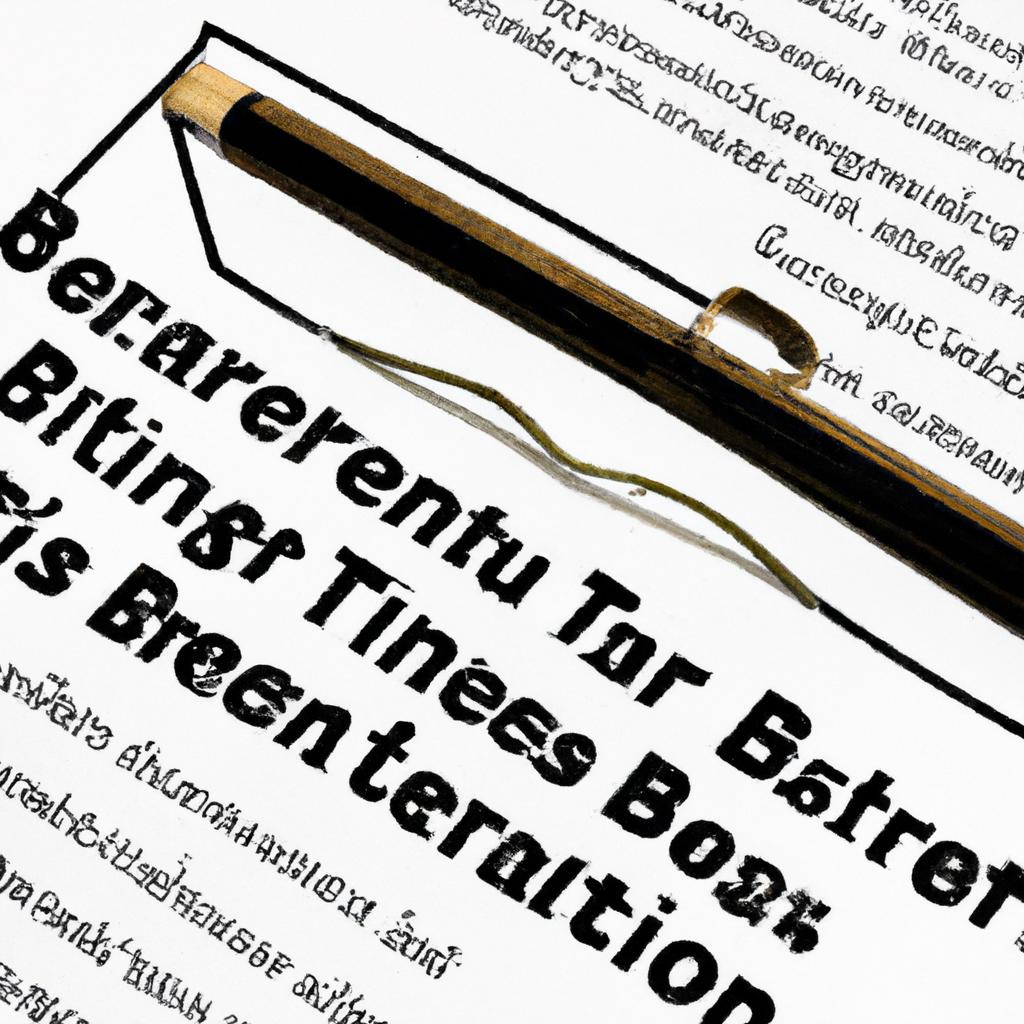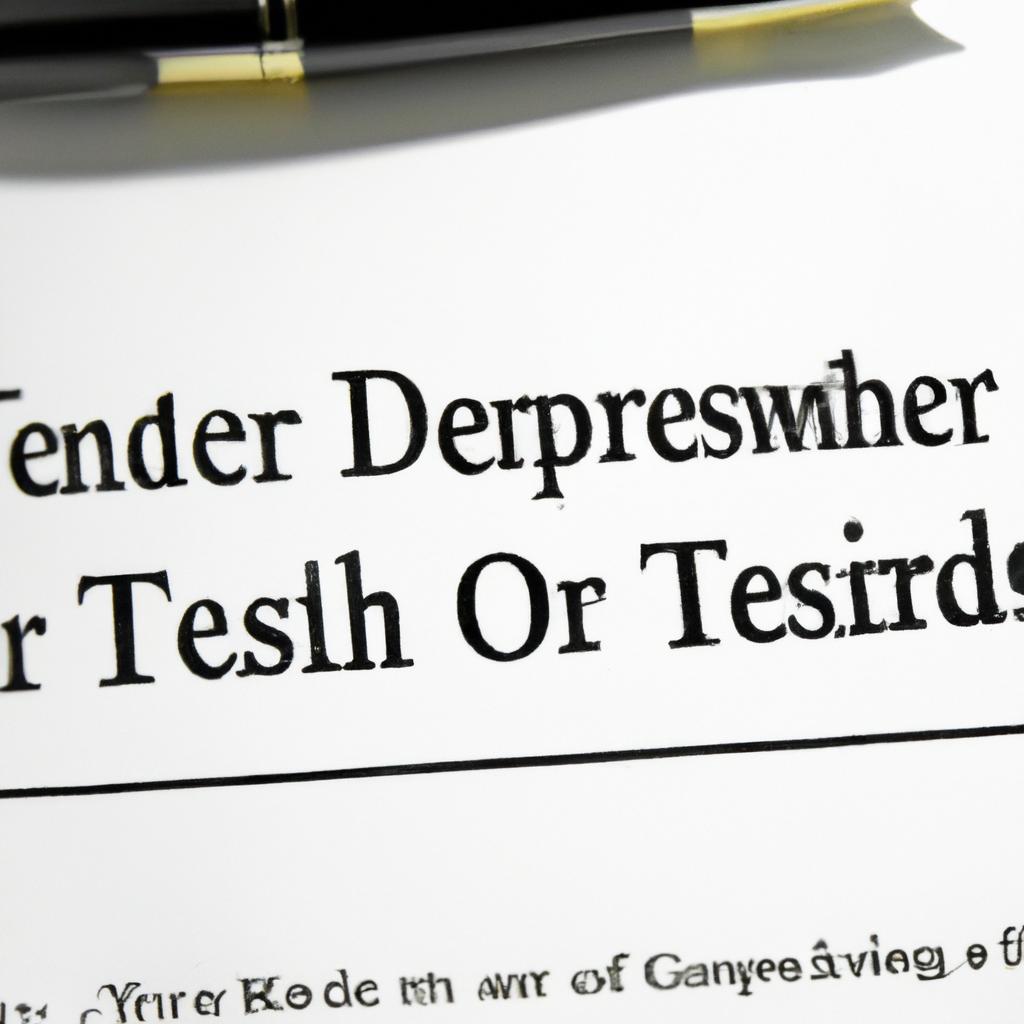In the intricate realm of estate planning, the implementation of Transfer on Death Deeds has emerged as a powerful tool for individuals seeking to streamline the distribution of their assets upon their passing. Across the United States, various states have enacted legislation to allow for the creation and utilization of Transfer on Death Deeds, a mechanism that affords individuals the flexibility and control over the disposal of their real property without the necessity of probate proceedings. As experienced attorneys at Morgan Legal Group in New York City, we understand the complexities and nuances of estate planning and are here to guide you through the intricacies of Transfer on Death Deeds in the states where this option is available.
Understanding Transfer on Death Deeds
Transfer on Death Deeds, also known as TOD deeds, are a way for individuals to transfer real property to designated beneficiaries upon their death without the need for probate. This legal tool allows property owners to specify who will inherit their property after they pass away, providing a simple and cost-effective way to ensure their wishes are carried out. Unlike traditional wills, Transfer on Death Deeds do not require court supervision, making the transfer process smoother and quicker for beneficiaries.
Currently, Transfer on Death Deeds are recognized in a growing number of states across the United States. Some of the states that have enacted laws allowing for Transfer on Death Deeds include Arizona, Arkansas, Colorado, and many others. This legal tool gives property owners the flexibility to plan for the transfer of their real property outside of the traditional probate process, offering peace of mind and security for both property owners and beneficiaries.

Benefits and Limitations of Using Transfer on Death Deeds
When considering the use of transfer on death deeds in estate planning, it is important to weigh the benefits and limitations carefully. One major benefit is the ability to transfer real property outside of probate, saving time and money for the beneficiaries. This can also provide a level of privacy since the transfer does not become a matter of public record until the owner’s death. Additionally, transfer on death deeds allow for flexibility, as the owner can revoke or change the beneficiary designation at any time.
However, there are limitations to using transfer on death deeds. One limitation is that these deeds may not be suitable for all types of real property, such as jointly owned property or property held in a trust. Additionally, the effectiveness of transfer on death deeds may vary depending on the state laws where the property is located. It is important to consult with an experienced estate planning attorney to determine if a transfer on death deed is the right option for your specific situation.

States that Allow Transfer on Death Deeds
Transfer on death deeds, also known as TOD deeds, are a useful estate planning tool that allows property owners to designate who will inherit their real estate upon their passing. These deeds bypass the probate process, making the transfer of property quick and efficient. If you are considering using a transfer on death deed, it is important to know which states allow for this type of estate planning. Below is a list of states that currently permit transfer on death deeds:
- Arizona
- Arkansas
- Colorado
- Illinois
- Kansas
| State | Status |
|---|---|
| New Mexico | Not allowed |
| Oregon | Allowed |
These states have specific requirements and limitations regarding transfer on death deeds, so it is important to consult with an experienced estate planning attorney to ensure that the deed is properly executed and will be legally enforceable. At Morgan Legal Group, we specialize in estate planning and can help you navigate the complexities of transferring property through a transfer on death deed.

Recommendations for Utilizing Transfer on Death Deeds in Estate Planning
When considering utilizing Transfer on Death Deeds in estate planning, it is important to note that not all states allow for this type of deed. Currently, there are 23 states (and the District of Columbia) that have statutes allowing for Transfer on Death Deeds. These states include:
- Arizona
- Arkansas
- Colorado
- California
- Hawaii
- Kansas
- Minnesota
- Missouri
- Montana
- Nevada
It is important to consult with a knowledgeable estate planning attorney to determine if a Transfer on Death Deed is a viable option for your specific situation in one of these states. Each state has its own unique laws and requirements when it comes to estate planning, so it is crucial to seek professional guidance.
Q&A
Q: What is a transfer on death deed?
A: A transfer on death deed is a legal document that allows an individual to transfer real estate to designated beneficiaries upon their death, without the need for probate.
Q: Which states have laws allowing for transfer on death deeds?
A: As of 2021, over 30 states, including California, Texas, and Florida, have laws that allow for transfer on death deeds.
Q: How does a transfer on death deed differ from a traditional will?
A: Unlike a traditional will, a transfer on death deed does not need to go through probate court, making the transfer of real estate quicker and less costly for beneficiaries.
Q: Are there any limitations to using a transfer on death deed?
A: Some states have restrictions on who can use transfer on death deeds, such as requirements for the property to be located within the state or limitations on the types of real estate that can be transferred.
Q: Can a transfer on death deed be revoked?
A: Yes, a transfer on death deed can be revoked by the property owner at any time before their death by executing a new deed or a written revocation of the transfer on death deed.
Q: Are there any disadvantages to using a transfer on death deed?
A: One potential disadvantage of using a transfer on death deed is that it does not allow for any conditions or restrictions to be placed on the transfer of the property, unlike a traditional will.
Wrapping Up
In conclusion, the option of transfer on death deeds offers individuals in certain states a convenient and potentially cost-effective way to transfer real estate to beneficiaries without the need for probate. Understanding the laws and requirements in your state is crucial to ensure a smooth and efficient transfer of property. Whether you are looking to simplify your estate planning process or pass on your property to loved ones, exploring transfer on death deeds may be a viable option for you. Remember to consult with legal professionals to determine if this is the right choice for your specific situation. Thank you for reading and we hope this article has provided valuable insights into this alternative estate planning tool.
 “States with Transfer on Death Deeds: Understanding the Benefits, Process, and Limitations”
“States with Transfer on Death Deeds: Understanding the Benefits, Process, and Limitations”
As we work hard to secure our financial future, many of us begin to think about what happens to our assets after we pass away. A common way to transfer property to our loved ones is through a will or trust. However, these methods may involve time-consuming and expensive legal processes, leaving many individuals seeking simpler and more efficient options. That’s where “transfer on death deeds” (TOD deeds) come into play.
A TOD deed, also known as a “beneficiary deed,” is a legal document that allows owners of real estate property to transfer their assets to their chosen beneficiaries after their death without going through the probate process. This type of deed is currently recognized in 25 states in the United States and offers numerous benefits for both the property owner and their beneficiaries. In this article, we will provide an in-depth understanding of states with transfer on death deeds, their benefits, limitations, and the process of creating one.
States that Allow Transfer on Death Deeds
Before we dive into the mechanics of transfer on death deeds, it’s essential to know which states currently allow this type of property transfer. As of 2021, 25 states have adopted transfer on death deeds, including:
– Arizona
– Arkansas
– California
– Colorado
– District of Columbia
– Hawaii
– Illinois
– Indiana
– Kansas
– Minnesota
– Missouri
– Montana
– Nebraska
– Nevada
– New Mexico
– North Dakota
– Ohio
– Oklahoma
– Oregon
– South Dakota
– Texas
– Utah
– Virginia
– Washington
– Wisconsin
Each state has its specific requirements and limitations for transfer on death deeds, so it’s crucial to consult with an attorney or do thorough research to ensure the validity and legality of the process in your state.
Benefits of Transfer on Death Deeds
There are various benefits of using a transfer on death deed to transfer your property to your loved ones, including:
1. Avoiding Probate Process: One of the biggest advantages of TOD deeds is that they help you avoid the lengthy and expensive probate process. Since the transfer of ownership is already outlined in the deed, there is no need for court involvement or legal proceedings, making it a much more streamlined and efficient process.
2. Flexibility: TOD deeds offer a lot of flexibility, allowing property owners to make changes to their beneficiaries at any time, as long as they are still alive. They can also revoke or change the beneficiary designation, providing them with the freedom to make decisions according to their current situation.
3. Cost-effective: As mentioned, TOD deeds help you avoid the probate process, which can often be costly. By using a TOD deed, you can save yourself and your loved ones the expense of attorney fees and court costs, making it a more affordable option for transferring real estate property.
4. Less Taxes: In some states, TOD deeds offer tax benefits, specifically in the form of property tax. Since the transfer of ownership takes place after the owner’s death, the property’s value is not reassessed for tax purposes, potentially saving beneficiaries from paying higher taxes on the property’s appreciated value.
The Process of Creating a Transfer on Death Deed
The process of creating a transfer on death deed varies from state to state, but the general steps involved are similar. We’ve outlined the process below to give you a general understanding of how it works:
1. Understand Your State’s Requirements: As mentioned earlier, each state has its own specific requirements for transfer on death deeds. It’s crucial to do thorough research or consult with an attorney to ensure you understand the process and the necessary steps in your state.
2. Create the Deed Document: Once you understand your state’s requirements, the next step is to create the deed document itself. Most states have pre-printed forms available, but you can also consult with an attorney to create a customized deed that meets your specific needs.
3. Fill Out the Required Information: The TOD deed document will need to be filled out with the necessary information, including the property’s legal description, the names and contact information of the beneficiaries, and the property owner’s details.
4. Sign and Notarize the Deed: The deed document needs to be signed in front of a notary public to ensure its validity. The notary public will also affix their seal and signature to the document, making it official.
5. Record the Deed: The final step in the process is to record the deed in the county where the property is located. This step is crucial as it helps prove the deed’s validity and ensures that the transfer of ownership takes place smoothly after the death of the property owner.
Limitations of Transfer on Death Deeds
While transfer on death deeds offer many benefits, there are also limitations to consider before using this option for transferring property. These include:
1. Multiple Beneficiaries: Only one beneficiary can be designated on a transfer on death deed. If you want to leave your property to multiple beneficiaries, a TOD deed may not be the best option for you.
2. Sole Owners Only: Transfer on death deeds can only be used by sole property owners. If you have joint ownership of the property with someone else, you cannot use a TOD deed.
3. Potential Legal Challenges: Depending on the state, there may be challenges to the validity of a TOD deed, especially if there are disputes among the beneficiaries or if the property owner was not of sound mind when creating the deed.
In Conclusion
Transfer on death deeds can be a simple and efficient way to transfer your real estate property to your chosen beneficiaries after your death. It offers numerous benefits, including avoiding probate and flexibility in making changes to beneficiaries. However, it’s essential to do thorough research and consult with a legal professional to ensure the process is valid and legally binding in your state, and to consider any limitations that may affect your decision. By understanding the benefits, process, and limitations of transfer on death deeds, you can make an informed decision about the best way to secure your property and provide for your loved ones after you pass away.

